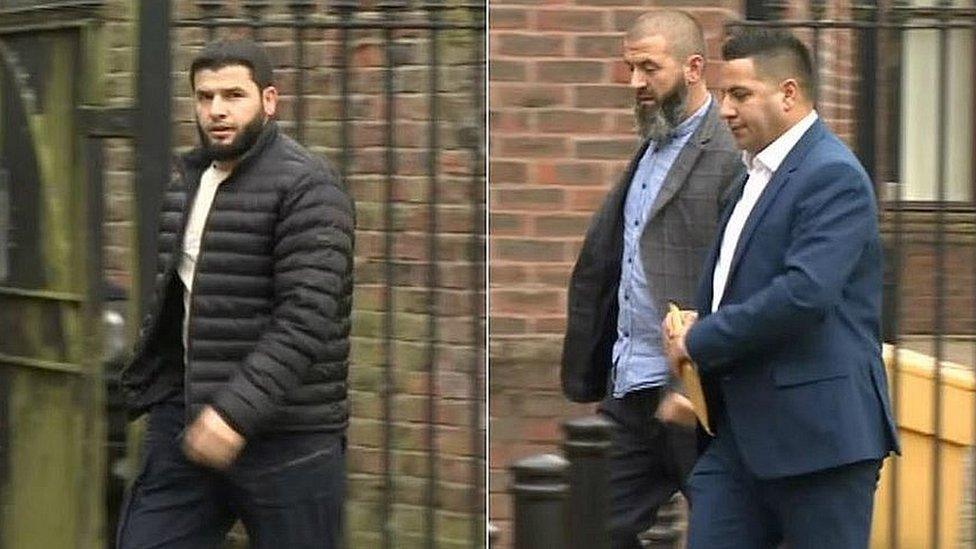Belfast car wash raided over human trafficking concerns
- Published
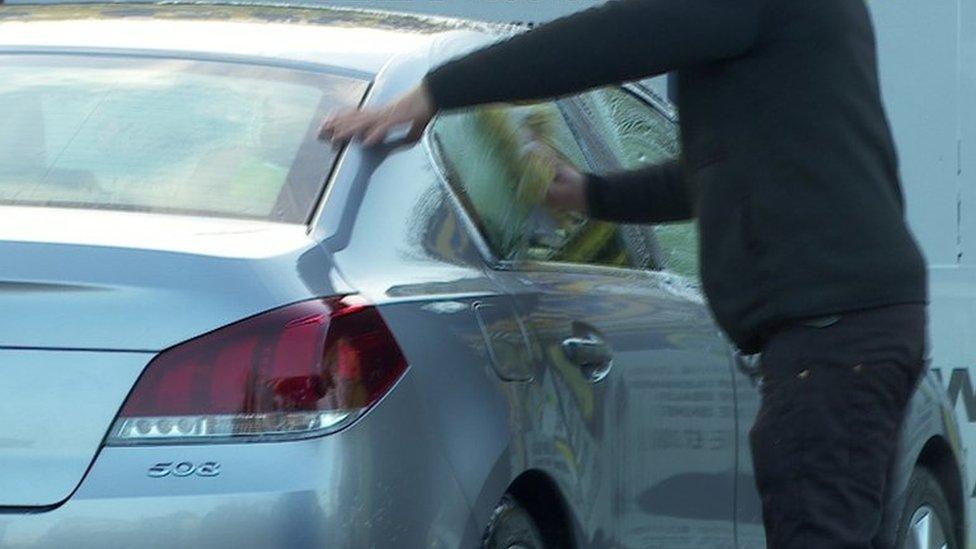
The operation follows ongoing UK-wide concerns about widespread exploitation of car wash workers
Police have led a raid on Belfast car wash after a tip-off from the public about potential human trafficking, but no arrests were made.
The operation included HM Revenue & Customs staff; Home Office Immigration Enforcement and Northern Ireland Water.
It follows ongoing UK-wide concerns about exploitation of car wash workers.
Since 2015, the PSNI has investigated 48 car washes and spoken to 212 workers but it has not been able to secure any prosecutions for labour exploitation.
'In plain sight'
The car wash industry across the UK has recently come under close scrutiny from MPs at Westminster.
Last year, Westminster's Environmental Audit Committee, external pointed out that 27% of UK labour exploitation cases recorded by the Modern Slavery Helpline in 2017 directly concerned car wash workers.
The MPs' report said that "thousands of cheap hand car washes have sprung up across the UK" over the past 15 years and now account for 80% of the sector.
They stressed that not all these businesses violate labour laws, but said "there remains exploitation and flagrant rule-breaking taking place at potentially thousands of hand car washes in plain sight".
The PSNI established its Modern Slavery and Human Trafficking Unit (MSHTU) in 2015 and has spoken to car wash workers who reported being paid as little as £10 a day.
'No evidence'
However, the MSHTU has not secured any prosecutions for exploitation at car washes.
"Whilst we have spoken to 212 workers, to date only six potential victims of labour exploitation have been recovered from hand car washes," said Det Insp Mark Bell from the MSHTU.
"When we speak to the workers, away from their managers or the owners, the vast majority state that they are not working under duress and there is no evidence of them being controlled or held against their will.
"Many indicate that they are content with their pay and conditions as they feel it is still more than they would otherwise have earned at home."
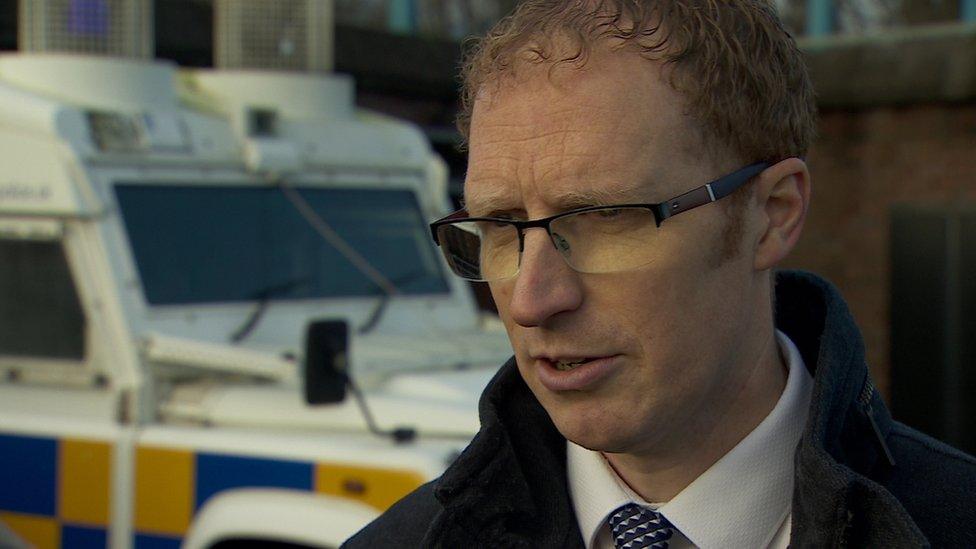
Det Insp Mark Bell said car wash workers reported being paid £10 a day
In order to achieve prosecutions for modern slavery or human trafficking, the police need the co-operation of the victims.
In the latest multi-agency raid in Belfast, workers at the business told police they were fine and no arrests were made.
Det Insp Bell said: "There is no doubt that many of these hand car washes are being run as legitimate businesses, working ethically and responsibly and doing their best to comply with all the regulations.
"However in some of these hand car washes, workers have told us they are being paid between £10 and £60 per day for carrying out this work in the cold.
"In these cases, it is clear that the owners are taking advantage of the workers' situation and their lack of knowledge of the law and their entitlements."
The PSNI said part of the aim of Wednesday's raid was to "raise awareness with the public about the signs that they should be looking out for".
'Modern slavery'
Members of the public can also report concerns about potential human trafficking at car washes through a dedicated app.
The Safe Car Wash App was created by a Church of England organisation called the Clewer Initiative, with the help of the National Crime Agency and others.
In the last year, the app has recorded more than 150 reports about car washes in Northern Ireland.
The Clewer Initiative is led by Bishop Alastair Redfern, who said cheap car washes have become "a major place for bringing in people in what is now recognised a modern slavery".
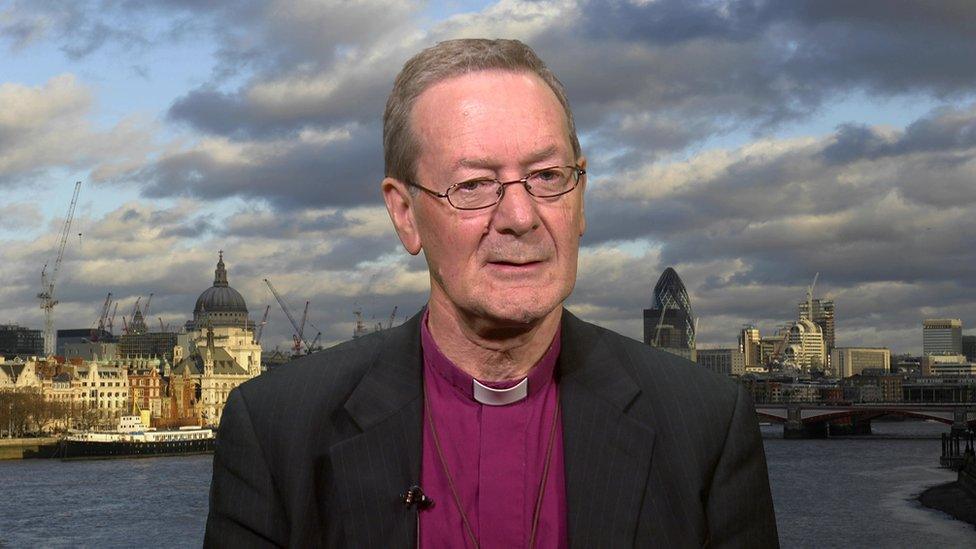
Bishop Alastair Redfern urged the public to look out for signs of exploitation
"The human cost is terrible, trauma is in a way too nice a way to describe it," the bishop said.
"People have come on a promise, they're excited, they've been offered an opportunity, they think this is going to be the making of them.
"When they get here it turns out to be totally different, their passports are taken, they're told not to talk to the police, they aren't allowed to learn the language, they're told they owe a lot of money for the transport."
'Under pressure'
The bishop said trafficked car wash workers are often subjected to physical intimidation and the gangs who bring them to the UK often know where their families live.
"So there are all these levers to put them under pressure to just to get on and work hard, accept the poor conditions, accept the peanuts in terms of money."
Bishop Redfern appealed to the public to "help push back" against human trafficking by being vigilant when buying services.
"Lots of us just go and grab a bargain and don't look around where it's coming from, who's serving it to us," he said.
"But if we would but look, we might notice signs that the people working there aren't being treated well, not wearing the right clothes."
The bishop added that modern slavery "happens all around us, and it largely happens because nobody says anything".
- Published7 April 2019
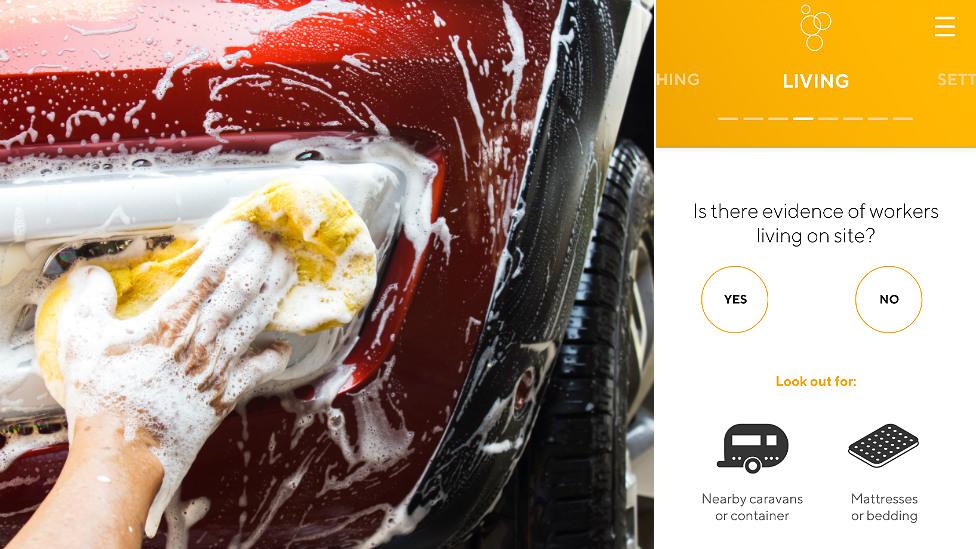
- Published19 November 2019
